Natural Lymphedema Therapy: How a Lymphologist Can Help
Lymphedema is a condition characterized by the accumulation of lymph fluid in the tissues, leading to swelling, most commonly in the arms or legs. It can be a chronic and debilitating condition, often resulting from cancer treatments, such as surgery and radiation, with breast cancer treatment being the most common cause in the United States. Seeking the help of lymphedema specialists can be crucial for effective management. This article explores the role of lymphologists, natural lymphedema therapies, and specific treatment options available for patients managing lymphedema.
What is Lymphedema?
Lymphedema occurs when lymph fluid, which helps in immune function and fluid balance, is not adequately drained from tissues due to damage or obstruction in the lymphatic system. This can be classified into two categories:
Primary Lymphedema: A rare condition typically present at birth due to abnormalities in the lymphatic system.
Secondary Lymphedema: More common and usually occurs as a consequence of damage to lymphatic vessels or nodes, often due to cancer treatments, such as surgery to remove lymph nodes, radiation therapy, or chronic venous insufficiency. Patients with lymphedema may experience various symptoms, including severe swelling, discomfort, and an increased risk of skin infections in the affected limb. This is particularly prevalent in cases of cancer related lymphedema, where treatments for cancer can lead to significant lymphatic damage.
Types of Lymphedema: Primary and Secondary
Lymphedema can be classified into two main types: primary and secondary. Primary lymphedema is a rare condition that occurs when someone is born with a problem in their lymphatic system. It can present at birth, during puberty, or later in life. This type of lymphedema is often due to genetic factors that affect the development of lymph vessels and nodes.
Secondary lymphedema, on the other hand, is much more common and is caused by damage to the lymphatic system. This damage can result from various factors, including surgery, cancer treatment, radiation, infection, or injury. For instance, breast cancer patients who undergo surgery to remove lymph nodes or receive radiation therapy are at a higher risk of developing secondary lymphedema. Understanding the differences between primary and secondary lymphedema is crucial for proper diagnosis and treatment.
Lymphedema Symptoms and Risk Factors
Lymphedema symptoms typically occur in the arm and/or leg and can vary from mild to severe, making use of the limb difficult. Common symptoms include swelling, pain, limited mobility, and skin changes such as thickening and hardening (fibrosis). Additionally, individuals with lymphedema are at an increased risk of infections in the affected limb due to compromised lymphatic function.
Several risk factors can increase the likelihood of developing lymphedema. These include undergoing axillary or sentinel lymph node dissection, receiving radiation to the breast or armpit area, having more than eight cancer-positive nodes, being overweight, and having larger breasts. Recognizing these risk factors and early symptoms is essential for timely intervention and effective management of lymphedema.
Role of Lymphedema Specialists
Lymphedema specialists, such as lymphologist, or a trained lymphedema therapists, play a vital role in the treatment of this condition. They are particularly skilled in managing breast cancer related lymphedema. They offer comprehensive care tailored to each patient’s needs, focusing on effective management strategies to alleviate symptoms and prevent complications. A major health prop a lymphologist employees is a min-rebounder trampoline. 87% non-impact it is easy on the bones and joints, ideal for seniors too. It works the lymphatic system gently in a 100% efficient fashion to mobilize it 100% efficiently moving lymph fluid through the lymph nodes and this entire whole body system, perfectly. This is key.
Lymphedema Diagnosis
An accurate lymphedema diagnosis involves a thorough assessment of the patient's medical history, physical examination, and sometimes imaging studies to evaluate their health. Early diagnosis is crucial for implementing effective treatment strategies that can minimize lymphedema progression and improve quality of life.
The Role of Lymph Nodes in Lymphedema
Lymph nodes play a crucial role in the lymphatic system by filtering out pathogens and waste products from the body. They act as checkpoints where immune cells can identify and attack harmful substances. When lymph nodes are damaged or removed, it can disrupt the flow of lymph fluid, leading to lymphedema.
In cancer treatment, particularly for breast cancer patients, lymph nodes are often removed or damaged during surgery or radiation therapy. This increases the risk of developing lymphedema as the lymphatic system’s ability to drain fluid is compromised. Understanding the role of lymph nodes in lymphedema is essential for developing effective treatment strategies and managing the condition.
Natural Lymphedema Therapy
While the concept of a full-body detox may be met with skepticism, utilizing a rebounder as part of a routine can be beneficial for promoting lymphatic health. The gentle, rhythmic movements associated with rebounding can help stimulate lymphatic flow, enhance circulation, and contribute to overall physical fitness. 10 minutes of rebounding is equal to 30 minutes on any piece of gym equipment. As you can imagine, this really helps alleviate fluid buildup, swelling, obesity, so as you get back to a healthy weight as well.
The Science of the Lymphatic System
The lymphatic system plays several crucial roles in maintaining health:
Fluid Balance : It helps regulate fluid levels in the body by collecting excess interstitial fluid and returning it to the bloodstream, preventing issues like lymphedema.
Immune Function : The lymphatic system transports white blood cells and other immune cells throughout the body. It also filters pathogens and abnormal cells through lymph nodes, playing a key role in the body’s defense mechanisms.
Waste Removal : The lymphatic system aids in removing waste products, toxins, and metabolic byproducts from the body, contributing to detoxification. This is particularly important if you have had cancer treatment and give better fluid flow.
Potential Benefits of Supporting the Lymphatic System
While a full-body detox may not be scientifically validated as a necessary practice, supporting and caring for the lymphatic system can yield several health benefits:
Enhanced Immune Response : By optimizing lymphatic function, you may enhance your body’s ability to fight infections and reduce the likelihood of developing illnesses.
Improved Fluid Drainage : Engaging in activities that promote lymphatic drainage—such as physical exercise, lymphatic drainage massage, and adequate hydration—can help prevent fluid retention and swelling, essentially you have way better fluid flow, due to less fluid buildup.
Better Nutrient Absorption : A healthy lymphatic system aids in the absorption of fats and fat-soluble vitamins from the digestive tract, contributing to better overall nutrition.
Reduced Inflammation : Supporting lymphatic health can help reduce chronic inflammation, a contributing factor in various diseases, including autoimmune conditions and certain cancers.
The use of a rebounder (a small trampoline) as part of a full-body detox program, like the one promoted by the detox guy, introduces an interesting aspect to the discussion around supporting lymphatic health. While the overall efficacy of such detox programs can be debatable, some scientific principles suggest that promoting lymphatic function can lead to improved health outcomes. Here's a breakdown of the relevant components:
Understanding Lymphatic Health
As previously mentioned, the lymphatic system is crucial for fluid balance, immune function, and waste removal. Supporting its operation can have significant health benefits, including:
Enhanced Immune Response : A well-functioning lymphatic system is essential for transporting immune cells and filtering out pathogens.
Better Fluid Drainage : Supporting lymphatic drainage can help prevent fluid retention and swelling.
Increased Energy Levels : The efficient clearing of metabolic waste can contribute to improved overall energy and vitality.
The Role of Rebounding
Stimulation of Lymphatic Flow : The act of rebounding creates a gentle but effective movement that can help stimulate lymph flow. The bouncing motion encourages the pumping action of lymphatic vessels, facilitating the movement of lymph fluid throughout the body and stimulating the lymph nodes. This can be particularly beneficial since the lymphatic system relies on physical movement to aid in fluid circulation—unlike the circulatory system, which has the heart to pump blood.
Low-Impact Exercise : Rebounding is considered a low-impact exercise, making it suitable for a wide range of individuals, including those who may not be able to engage in more vigorous workouts. This accessibility can encourage regular activity, which is vital for lymphatic health.
Improved Cardio and Muscular Fitness : Regular use of a rebounder can improve cardiovascular health and muscle tone, contributing to overall physical well-being. Enhanced fitness levels can support other bodily functions, including lymphatic drainage.
Stress Reduction : Physical activity, including rebounding, can help reduce stress levels. Lower stress is associated with better immune function and overall health.
The Balance of Science and Practice
While there may not be extensive scientific research directly supporting full-body detox programs like the one promoted by us, the underlying principles of promoting lymphatic health through activities like rebounding do have merit. Exercise, particularly that which encourages movement such as rebounding, is scientifically validated to support lymphatic function and therefore remove excess fluid.. See the NASA report on our website.
In summary, combining this with other healthy lifestyle practices, such as hydration and proper nutrition, may offer more sustainable benefits than reliance on an extensive detox program alone.
Other methods a lymphologist will use…
A lymphologist such as myself will also use effective cleaners, cleanses and detox formulas specially picked to aid in the detox by stimulating the lymphatic system so it unsticks, properly, and starts to again drain properly. Once you start to do this then you can have toxic overload.
This is a problem as it is what causes a lot of people to take their rebounder and throw it, lymphology and body detox in the corner. Why? There are 24 symptoms of a congested lymphatic system, dirty lymphatic fluid. Some include headaches, fever, general congestion, sore throat, allergies, dizziness, sour stomach, etc... Most people are more toxic than they know, never mind people with lymphedema symptoms, stuck lymph nodes and vessels, fluid retention, toxic buildup.
Body toxicity usually starts around age 25
Simply your lymphatic fluid starts to get congested around age 25. This is when the lymph fluid starts to thicken due to excess debris in your body from improper food, GMO, poor lifestyle, lack of. exercise, environmental pollution, stress, etc. So someone with lymphedema has a heightened toxic load in their bodies, it congests their lymphatic drainage and system, the lymph nodes get congested, the immune system cells can't congregate right. So it also makes treating lymphedema harder and therefore it requires someone who understands how to detox the lymphatics of the body.
The lymphologist and the client work together...
A Lymphologist, like myself is a body detox specialist. 20 years certified. The lymphologist works with the client one on one either virtually or via phone to implement the program over several months. The client uses the rebounder at home, implements the program with the input and guidance of the lympholgist, based on our consultations. Once you are sick, you need a lymphologist, be it us at the detox guy or someone else.
Medical Treatment Options, including Compression Therapy
Lymphedema treatment can vary based on individual patient needs but typically includes a combination of therapies are presented medically:
- Manual Lymphatic Drainage (MLD): This specialized massage technique uses light pressure to encourage lymph fluid movement, reducing fluid buildup at the lymph nodes and swelling in the affected limb.
- Compression Therapy: The use of compression garments, such as breathable cotton socks or sleeves, helps promote lymph flow and prevent fluid retention in the limbs by applying consistent pressure on the tissues.
- Complete Decongestive Therapy (CDT): This comprehensive approach combines several techniques, including MLD, compression therapy, exercise, and skin care, to promote lymphatic function and manage lymphedema symptoms.
- Pneumatic Compression Devices: These devices provide intermittent pneumatic compression to the affected limb, which can help move lymph fluid and reduce swelling.
- Light Aerobic Exercise: Moderate exercise, including rebounding or low-impact activities, can support lymphatic function by encouraging fluid movement and circulation in the body.
Potential Complications
Patients with lymphedema must remain vigilant about potential complications, such as severe swelling, skin infections, and progressions in lymphedema symptoms. Working closely with lymphedema specialists can guide patients in managing these risks effectively.
The Importance of Professional Guidance
Engaging with lymphedema specialists can significantly enhance patients' understanding of their condition and the available treatment options. Lymphedema specialists provide critical support through:
- Education: Helping patients understand their condition, risk factors, and self-care strategies.
- Customized Treatment Plans: Developing individualized care strategies based on the patient's specific lymphedema status and lifestyle.
- Supportive Resources: Connecting patients with additional resources, such as support groups and educational materials about living with lymphedema.
Conclusion
While full-body detox programs may have debatable efficacy, the importance of maintaining a healthy lymphatic system is supported by scientific principles. Working with lymphedema specialists can help manage symptoms effectively, improve fluid flow, and enhance overall quality of life for patients with lymphedema. By embracing a multifaceted approach that includes manual lymphatic drainage, compression therapy, aerobic exercise, and natural lymphedema therapies, individuals can better manage their condition and potentially reduce the risks of complications associated with lymphedema.
Embracing a Holistic Approach
Incorporating a holistic approach to lymphedema management is vital for long-term success and overall well-being. This is a cornerstone of any proper detox program, as is the rebounder... Here are key elements to consider:
1. Lifestyle Modifications: Encouraging healthy habits, like regular physical activity and a balanced diet, can enhance lymphatic function. Weight management through proper nutrition can lessen the burden on the lymphatic system, promoting better fluid balance.
2. Mindfulness and Stress Reduction: Chronic stress can negatively impact immune function and overall health, including lymphatic health. Incorporating relaxation techniques such as yoga, meditation, or mindful breathing exercises may benefit those experiencing lymphedema.
3. Regular Monitoring: Keeping a close watch on any changes in symptoms or new challenges that arise is crucial for timely intervention. Regular check-ins with a lymphedema specialist can help address any emerging concerns or adapt treatment plans effectively.
4. Community Support: Connecting with support groups for individuals with lymphedema can provide valuable resources, encouragement, and shared experiences. This community can be especially helpful for both emotional support and practical advice on self-care and management.
Final Thoughts
While a full-body detox may not address the specific needs of individuals with lymphedema, engaging in natural therapies, seeking the expertise of lymphedema specialists, and adhering to a comprehensive care plan can lead to significant improvements in the management of this condition. By focusing on maintaining lymphatic health, patients can navigate the complexities of lymphedema more effectively, ultimately enhancing their quality of life and reducing the impact of this chronic illness. In conclusion, if you're dealing with lymphedema, consult a qualified lymphedema specialist. Their expertise can provide invaluable guidance and support to help you manage your symptoms and improve your overall health. Whether through manual lymphatic drainage, compression garments, or incorporating moderate exercise like rebounding and full body detox, the right combination of treatments can empower you to take control of your health and well-being.
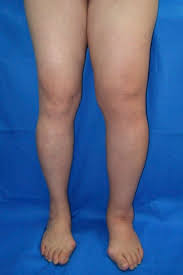

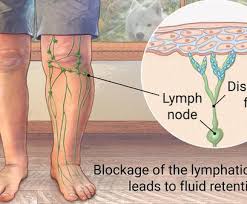




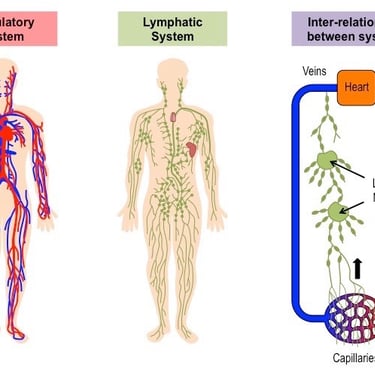



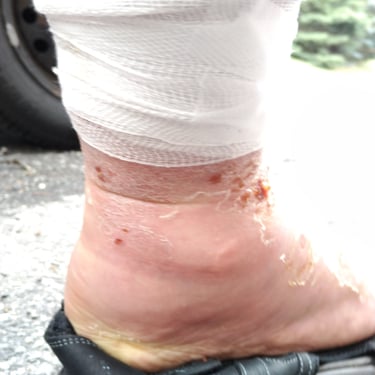
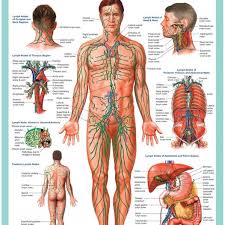
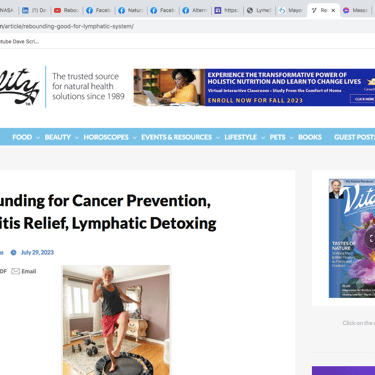


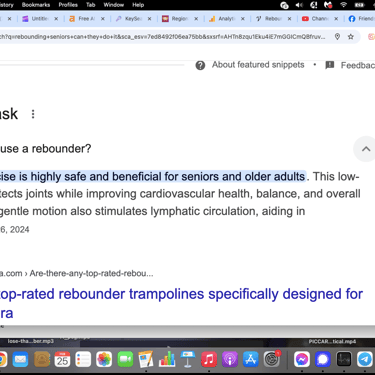





Immune
Learn about lymphatic system and body detox benefits today.
Health
Cleanse
343-999-9498
© 2024. All rights reserved.
